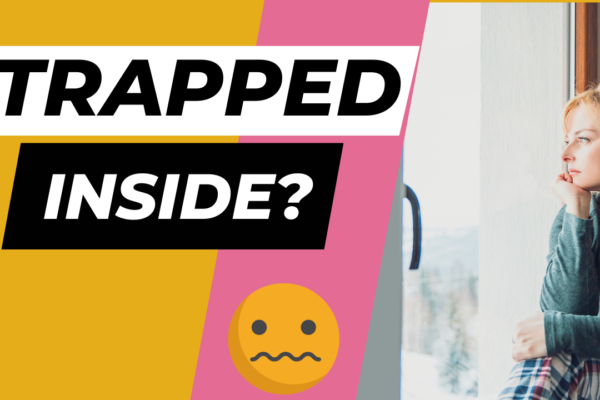Table of Contents
How To Cope With Depression In 12 Proven Steps: Step 10
In this post, I will cover the second of skills in addressing depression in the context of relationships, and how these skills help in overcoming barriers to healthy relationships.
Before reading on, be sure to review the skills discussed in my previous post, How To Cope With Depression In 12 Proven Steps: Step 9
This post will cover:
Overcoming Barriers To Healthy Relationships by looking at:
-Relationship pitfalls
-The impact of Grief and Loss on relationships
-Role fluctuations
-Role disputes
Relationship Pitfalls:
Despite what our comparative thoughts may tell us, even the most ideal of relationships are not without their arguments. Disagreements and arguments have three basic themes. If you are able to gain a greater understanding of these themes, you will be better equipped to mitigate the fallout when they occur and focus your energies on protecting the relationship. In learning to be more effective at overcoming barriers to healthy relationships, it is crucial to know what the biggest hurdles are. If you or a loved one is exhibiting symptoms of depression, you will want to assess for the following culprits.
-Grief and loss: Have you or your loved one experienced any recent deaths, sickness, separation (divorce, break-up)? What happens when you experience these things, how do to tend to cope?
-Role fluctuations: Consider if your role in life has taken on any form of change in response to changes in your environment or context. It is not uncommon to feel depressed as a result of change of status, because our sense of identity and purpose is closely tied to the roles we assume in life, and may have strong reactions to new roles being forced on us or feeling at a loss for a defined role in our lives.
–Role Disputes: Role disputes stem from one of three general areas. Misunderstandings, unequal investments, or differing paradigms. Why are relationship disputes so impactful? Because they have such a strong impact on other life domains, and how we function in them in our other roles. Progress is made with intense focus, managing disagreements requires pause.
Now that you are better acquainted with these pitfalls, we will take a closer look at each in overcoming barriers To healthy relationships
Grief and Loss
The first step in coping with grief and loss issues, is to acknowledge that it is normal and even healthy to experience sadness over the changes that result from the perceived loss. This change impacts your support system and sense of security. This loss could be from the death of a spouse or loved one, a divorce or separation, or it could be an adjustment, such as relocating and moving away from your support system. Depending on the circumstances, you will experience different ranges of emotions.
If you feel that you have experienced a loss of some kind, now would be a good time to write it out in specific terms.
Next, consider how this loss has impacted the way that you are interacting with your environment and with others in general. Can you identify any changes in your other relationships since the loss?
As you learn methods for overcoming barriers to healthy relationships, you find that you are become better adapted to coping with loss.
Now, consider your thoughts around the loss. Have your thoughts about the self changed? Do you engage in shoulding/negative self-talk? (“I should have done blank differently).” Do you struggle with feelings of guilt?
Lastly, reflect on your behavior since the loss. Has your behavior or routine changed since the loss? Have you stopped attending to your self-care or healthy activities? Have you increased unhealthy activities as a means to cope?
Coping with Grief and Loss
Coping with loss does not translate to burying it. It denotes the idea that you can have deep feelings and remorse over the loss, without becoming depressed about it. It is the ability to acknowledge the loss, without allowing it to define you.
This is accomplished by viewing the loss through the lens of CBT (Cognitive Behavioral Therapy). By exploring your relationships, thoughts and emotions in response to an event, you can increase understanding and decrease blame, lending to a state of acceptance.
Leveraging relationships:
Inquire from others how they have coped with loss in their lives. How have they managed to care for themselves and attend to their responsibilities in the face of grief? Learn what has worked for others, experiment with their approach and see what works for you in your specific circumstance. Once you have identified some contacts to consult, write their names down.
NOTE: grief and loss groups are a great place to get this kid of support. See the link below for a common tool that I use in referring clients to local, affordable, grief and loss support groups.
Perspective is everything:
In the face of grief and loss, it is not easy to think of perspective as a choice, but it is. This is because we actively and naturally, turn our mind to the things that are most significant to us. Our thoughts are directed toward the memories we are most attached to, for better or worse. From a CBT perspective, we can use this to our advantage in times of loss to help us better cope with the unpleasant experience. By this I mean that we can focus on the death or loss we are experiencing as the most significant aspect of our experience, or we can choose to turn our mind toward the things we appreciated about having participated in the life of the person prior to their death, which, is both meaningful and of far greater prominence than the death or loss itself, only being a fraction of our experience with that person.
Because it is human nature for our thoughts and emotions to gravitate toward the experience of loss (protest behavior), it requires some proactive effort to combat this automatic response. One helpful method is to write down/journal, fond memories you shared about the person or things you appreciated about who they were.
Actions:
We learn acceptance through our actions, the things that we do that allow us to accept what has happened, without giving assent to it; we make peace with what has transpired, without necessarily being “okay” with it. All cultures have traditions for gaining a sense of closure, allowing the suffering individual to move on and accept the loss. Common rituals are funerals, wakes, and memorial services.
You can create meaningful rituals of your own on a personal scale to cope effectively in times of loss, such as writing a letter to your loved one and casting it into the ocean, or lighting candles or leaving pictures at their resting place. Acceptance is always acquired through action of intention.
Role Fluctuations
Now, loss is not always about death. Loss is often experienced in the form of role fluctuations. If a loss is experienced over transition, we can find ourselves morning the loss of purpose that the role provided, especially if that transition is not anticipated. The more defined our roles are, the stronger our constitution is regarding our ego and sense of agency. When our roles are changed of our own accord, we are keenly aware of what to expect with the transition and although we may be saddened over some of the anticipated loss with the changing of our role, there is a clear benefit we are focused on as the purpose of our transition.
As you learn techniques for overcoming barriers to healthy relationships, you will become better at adapting to change.
Some common examples of self-imposed transitions are as follows: leaving home to start college, leaving home to get married, going back to work after children have grown, and leaving current job/city for a promotion.
All of the above examples are perceived as positive transitions, things moving us closer to our goals and dreams. But even with that, there is loss of the prior roles held, such as relationships with co-workers, the intimate support of parents when living in the home, etc..
Then, there are the roles transitions that are imposed on us. Self-imposed transition is hard enough to cope with, but when the change is unexpected, it can cause an identity crisis. We can lose our sense of self and our sense of purpose, placing us at great risk for depression.
Some common example of imposed transitions: Loss of a job, divorce, injury/disability and financial crisis.
Imposed transitions can leave us feeling stuck, because we did not plan for the newly assumed role and are therefore ill-equipped to cope effectively. The person who loses their job may feel they can no longer identify themselves as “a worker”, the person who once prided themselves in their marriage, cannot longer identify themselves as “a good spouse”.
Regardless of the type of role transition you experience, be it self-imposed or unexpected, it is vital that you learn to define your experience in clear terms as soon as possible. Describe it, write it down.
You may have a lot of different feelings about the situation that is perfectly normal, write down our feelings so that you can later explore them. There is no right or wrong feelings.
NOTE: It is possible to experience duel role changes, meaning that that we can experience multiple losses as a result of one loss, because of the way our life domains are tethered together with other held roles. For example, a divorce could change your identity as a spouse, and a home owner. It is important to acknowledge all of the losses as a result of role change.
Coping With Role Transitions
Learning to manage role transitions is an important life skill, because change is an ever constant element in our lives. Change is not bad in and of itself, it is actually a crucial part of being happy. Change helps us maintain perspective, appreciate fragile nature of our existence, makes dreaming and goal planning possible, and fuels creativity and inspiration. The happiest people are the ones who learn to adapt to change effectively.
The following considerations can help you adapt to change.
–Role Strain: All of us hold more than one role at any given time, and sometimes these roles can compete for more attention than we have time, energy or resources to accommodate. If you are feeling depressed, tired, fatigued or frustrated, it is sometimes an indicator that you’re headed toward burnout because you cannot prioritize competing roles. Consider if your roles have defined boundaries and if you feel you are committed to more than what you can reasonably attend to, then consider what you can give up, re-prioritize or delegate to release the stress.
-In light of your new role, what steps could you take to build a healthier quality of life and what would be the ideal lifestyle given your new role?
-What kind of social support can you leverage to help you adapt to this new role, what can of action can you take to get more support?
-What is the nature of your thoughts around the role transition? If they are limiting or depressed thoughts, what primary concerns do they speak to? If they are unhelpful, how might you reframe your thoughts toward a healthier perspective?
-What are the actions you can implement immediately to better acclimate to the new role or change that has occurred?
Role Disputes
Role disagreements are among the most common complaints with quality of life issues, especially related to depression. Role disputes are a salient stressor, found across all life domains, impacting the home, place of work, intimate supports, places of worship and friendships.
As you learn effective coping skills for overcoming barriers to healthy relationships, you will become more proficient at managing conflict.
Regardless of where role disputes turn up, there are some basic skills for resolving them, which we will cover now.
Relationship conflicts have three points of intervention:
-How we view the other person
-how we think about the problem
-how we behave in response to the problem.
First things first. Describe the conflict you are experiencing in as specific terms as possible; write it out.
Second: consider if you are viewing the other person as a whole, not just the characteristics that you attribute to be associated with the disagreement. Try to see the situation from his or her perspective. What valid points are they making, what points are you contending? You can attempt to see this situation from their viewpoint without necessarily agreeing with it. Can you identify a compromise to still get a benefit out of the resolve?
Third: Consider the manner in which you respond to distress. What is your behavioral default? Now, consider how you are responding to this particular dispute. Does your behavior change regarding this person from your default coping? If so, how? What is it about your dealings with this person that makes your response unique?
Resolving Disputes
We can better resolve disputes by utilizing the skills learned from cognitive behavioral therapy to seek understanding versus blame.
- In the words of Jack Sparrow, “The problem is not the problem, it is the way you are thinking about the problem that is the problem.” Isolate the problem as a separate entity that the person tethered to the other end of it. You can use intentional language to help you gain perspective. Examples include statements such as: “I see the problem as…..the common goal as I see here is….we are both struggling because…..”
- Brainstorm. Rattle off as many plausible resolutions as you can without judgement, which are safe in their execution. Encourage your counterpart to do the same. After collecting some viable options, consider which ones have the greatest potential for positive outcomes with practical implementation.
- Now, take the combined ideas from both parties and rate them separately. It would look something like this:
| Plausible Resolutions | Your appraisal (0-10) | Counterpart’s appraisal (0-10) |
- Select the resolutions that have the greatest value from both sides and implement them in order from highest to lowest match.
- Repeat step four until a satisfactory resolve is made.
NOTE: Although many relationships can be improved and disagreements can be resolved though implementation of CBT skills, if the relationship involves risk to your personal safety, attempting a resolve is not the best course of action. If you feel threatened or in danger, always seek personal safety by distancing yourself from the threat before anything else and seek support. National Domestic Violence Hotline: 1- 800-799-7233.
Key Points
- Grief and loss is a normal, human experience, but you do not have to morn in isolation. Seek support and cope though planning healthy activities. GRIEF AND LOSS GROUPS: GRIEFSHARE.ORG-Grief and loss support group locator
- Change is a constant in life, and when change occurs, so do our assumed roles. You can cope by seeking methods for creating meaning and purpose in your new roles, regardless if they are imposed or assumed.
- A great skill to master in relationships is conflict resolution. If you can learn to seek problems as a separate entity and not your counterpart, the relationships in your life will be more positive.
- No relationship is perfect, and all good relationships take work in learning to address the problems unique to them, but with a little effort, and a strong foundation of good boundaries, you can become effective at overcoming barriers to healthy relationships
Exercise:
- Continue to track your mood, triggers and coping with the quick mood scale (included as free download when you sign up for the mailing list). Note the frequency of positive and negative interactions you are having during the week.
- Plan a healthy activity and the person that you will reach out to for participation.
- Pick one of the three relationship pitfalls discussed to work on:
-Grief and loss
-Role fluctuations
-Role Disputes
Consider your points of intervention: the way you interact with the person, the way you are thinking about the relationship/problem, how you are acting in response to it and what the change is that you want to see and why the change is important to you?
Up Next
I will cover skills for interpersonal effectiveness for improving communication within relationships, which in turn helps to maintain a healthy mood.
It is my mission to equip you with valuable and effective coping skills and clinical interventions, to improve your mood, be more productive and improve your quality of life, so you can do more, and worry less.
ASK: If you have a question you’d like me to answer here on the blog (even if you think it’s a silly one!), please use the form on the CONTACT ME page, or the comment section below. I would be happy to take a poke at it and provide a long form answer when appropriate.
SHARE: Also, be sure to share it with a friend, as there is still a lot of work to be done in raising mental health awareness.
SUBSCRIBE to get your FREE MOOD TRACKING TOOL and quick Mental Health Hacks in addition to this newsletter. Sign-up with the form below.
Recommended Reading
Heads up: This article/page does contain affiliate links to products sold on Amazon, which I recommend in the context of this discussion, because they have proved to be helpful to me and/or my clients. As an Amazon Associate I earn from qualifying purchases by way of commission at no additional cost to you.

NEED CRISIS HELP? If you need immediate crisis help with your depression, you can call the National Suicide Prevention Lifeline at 1-800-273-8255 or text “START” to 741-741
References:
Group Cognitive Behavioral Therapy for Depression:-Jeanne Miranda, Ph.D; Stephanie Woo, Ph.D.; Isabel Lagomasino, M.D., M.S.H.S.; Kimberly A. Hepner, Ph.D.; Shelley Wiseman, B.A.; and Ricardo Muñoz, Ph.D. Revised August 2006.
admin
Latest posts by admin (see all)
- Thriving with Autism and ADHD: Expert Strategies for Managing Burnout - April 22, 2024
- Serial Killer Spotlight: Dr. Caparelli’s True Crime Analysis - April 14, 2024
- Donna’s Law: Stop Gun Suicides - March 22, 2024









